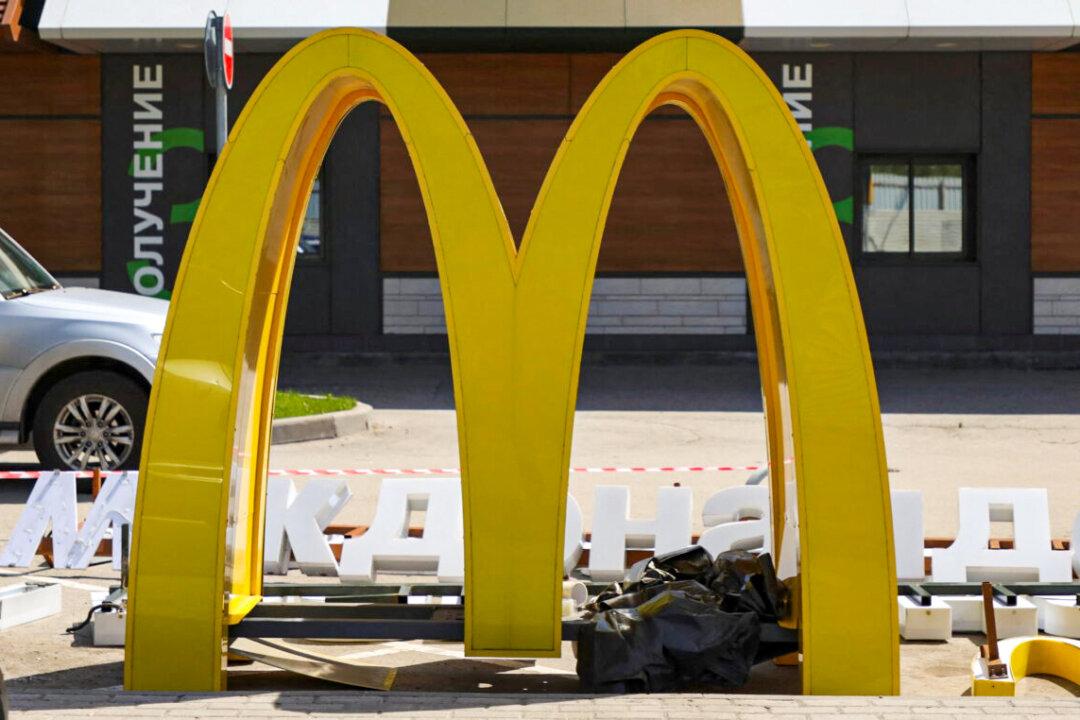McDonald’s removed its signature “Golden Arches” sign from one of its locations near Moscow on Monday following an earlier announcement that it was withdrawing from the Russian market as a consequence of the country’s invasion of Ukraine.
The fast-food giant removed its sign from a McDonald’s location in Khimki, a Russian city several miles north of Moscow, beginning a process that will occur at McDonald’s restaurants across the country after over 30 years of serving Russian customers.





